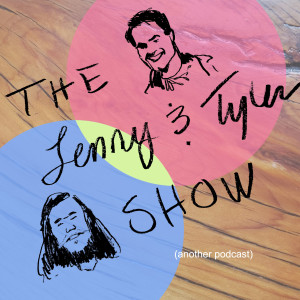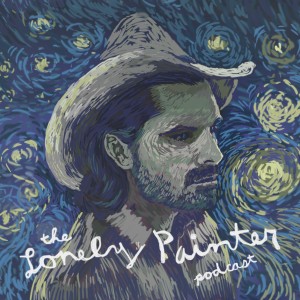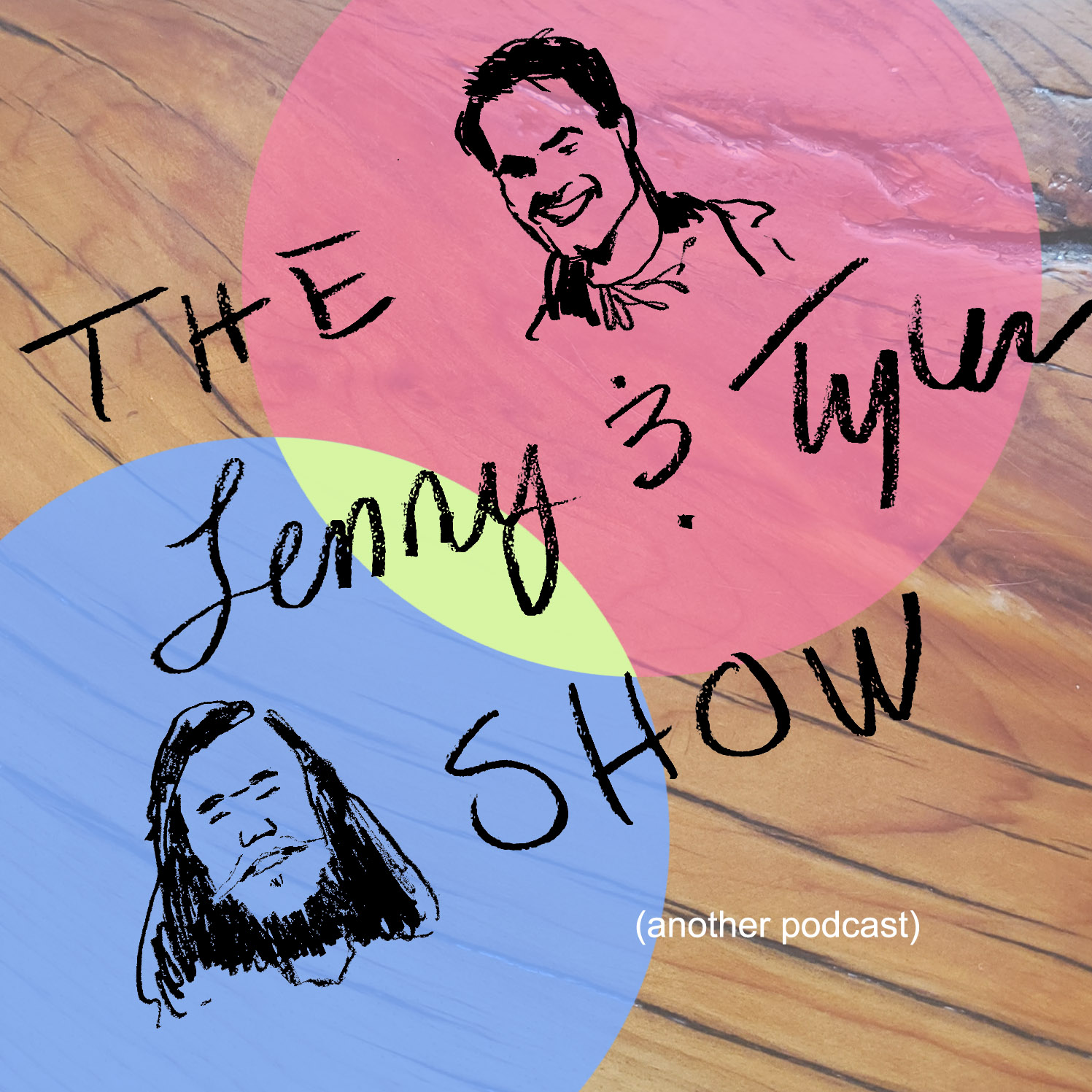Episodes

Monday Aug 26, 2019

Monday Aug 05, 2019
Let There Be Lack
Monday Aug 05, 2019
Monday Aug 05, 2019
I think we should pursue things that bring us into deeper and higher love. And when we do fall, and our lives are in pieces perhaps we can remember that though we will never have the power to speak light into existence as God did when he said, “Let there be light,” may we be reminded in those most trying and downtrodden times and when we’re tempted by that next thing that we fantasize will take away all our longings and problems we say what is fully in our power to say: “Let there be lack.”

Thursday Apr 11, 2019
Anti Wisdom
Thursday Apr 11, 2019
Thursday Apr 11, 2019
Why do we fall so far short of human fulfillment?
"We fall away from what we could be, namely united in love through justice and truth, because we want to draw the whole world into ourselves and our finite reality. And this is the old doctrine of the paradise story, '...you will be like God,' that’s the temptation."
-- Paul Tillich
"Wisdom is pagan!" -- Slavoj Zizek
Why I am opposed to wisdom teachers
The apostle Paul’s writings are, according to most scholars, the closest we get to the historical Jesus. Paul writes that he preaches only Christ crucified. It’s as if what Jesus the man said and did while alive was of little interest to Paul. Paul never knew Jesus in the flesh like the disciples and others did, and so I can’t help but wonder why he’s not interested in the words and actions of this man whom Paul had come to believe was the Christ. Based upon his writings, I can’t help but think that for Paul there must have been something far more profound in what the notion of Christ crucified means for humanity -- that this act was far more important than Jesus’ words and miracles. Why?
I hear friends that are worn down in the grind of life express how burnt out they are. The words, “I kill myself, and kill myself, and kill myself,” are suspect to me lately. For I have a sneaking suspicion: What if the point of the bible, God’s covenant with Israel, Christianity, and the idea of Christ crucified is to show us the impotence of our sacrificing and it’s inability to bring about the arrival of whatever ideal future we strive for and always miss? What if the point of Christianity is to break this frenetic obsession and belief in this form of destructive sacrifice? We think “if only this thing were different, if only they weren’t here, if only I had this one thing … then everything would be great.” ... “I’ll be happy when...” Such thoughts fail to recognize the radical saving grace of Christ crucified.
The reality and insistent nature of death was once felt far more than we now experience. “...Here hung the lips that I have kissed I know not how oft.” - Hamlet says while holding the skull of Yorick, his father’s old court jester. It’s been a while since I’ve held the skull of someone I once knew. The people of old experienced the wonders and horrors of nature and felt the anxiety of fate and death. They lived pondering the enigmatic nature of their world. Floods, droughts, disease, heartache, and inexplicable calamities of all kinds cause humans to ask, “why?” We seek meaning from such incomprehensible effects, and in this unknowing we look around for a cause. We offload, finger point, analyze, project, scapegoat and kill something or someone in the hopes that a better future is just around the corner. It is for us most difficult to abide God’s silence.
Fearing God’s wrath, the people of old sacrificed goats and slaves, and virgins, and children desperately seeking to appease God for hope of better days to come. Have we in 2019 come any further? Or do we throw ourselves and others against the sacrificial wall, seeing what latest diet, guru, and wisdom sticks around the longest? Do we not still point to various groups of people believing everything would be better if they weren’t here … or everything would be great if they could just see things the way I see things ... if they’d just believe how I believe? Despite the insistence upon meditation or the newest fad in self help the words, “I kill myself, and kill myself, and kill myself,” ring on.
Christ crucified breaks apart the need for scapegoats, gurus, and rules for life and thus is radically anti wisdom. Any prescription that overlooks this beautiful gift and sends a person on a path to self fulfillment by way of additional striving is idolatrous and is akin to the serpent’s lie and our subsequent temptation to be like God.

Sunday Mar 31, 2019
The Sinful Painter
Sunday Mar 31, 2019
Sunday Mar 31, 2019
“It is by grace you have been saved.” -- Though I saw these words written by the apostle Paul long ago, I only just now feel their vibration within me. I contend that regardless of whether or not one believes in God or an afterlife, it is possible to experience the truth of these words. Setting aside any hope of future heavenly treasures or fear of condemnation and the agony of eternal torment, I believe the existential power, thunder, and life giving meaning of these words can be brought into this life here and now.
Because of the work of the great 20th century theologian Paul Tillich, I’ve come to understand sin in a new way. Tillich defines sin as separation -- separation from God, from self, from our neighbor. Because some of us do not believe in the existence of the divine, I won’t write of the notion of separation from God but will instead focus on separation from self and separation from others and then will return to the apostle Paul’s words that I’ve included above.
That we feel separation from our own selves at first seems nonsensical. How can I be separate from myself? But upon second consideration I realize that so often I do in fact feel separation between who I am and who I wish was. I wish I was taller. I wish I was in better shape. I wish I was richer. I wish I was in a loving, exciting, romantic relationship. I wish I was bigger, better, and stronger at just about anything I can imagine. The distance between these two selves: my actual self, and my idealized self creates within me sadness and guilt for having fallen short. (Sin also translates: to miss the mark) The distance between my present self and my future self that will one day face death, and the fact that I lack the knowledge of what death will be like, how it will happen, whether or not loved ones will hold my hand as I pass, and the enigma of what lies beyond produces in me anxiety. I’m worried by the questions: Am I living up to my potential? Will I ever find love? Does painting or anything even matter? The separation I’ve felt at times from my friends, my mother, my father, my brother, and ex-girlfriends has led to the most torturous days and sleepless nights -- the grinding of teeth and the wishing that I or they hadn’t said what was said or done what was done fills me with longing and regret.
But when I return to those words, “It is by grace you have been saved,” and read Tillich’s definition of grace as acceptance, and then ask myself: can I accept that I am not who I wish I was? Can I be okay with being misunderstood? Can I be okay being alone? Can I be okay with the fact that there is separation between they and I? Can I be okay with not having certainty in the midst of life’s unceasing questions? I take in a deep breath, and a ‘yes’ rises within me and the guilt of having missed the mark and having fallen short of my ideal self melts away. And so if the power of grace is, as Tillich claims, the acceptance of acceptance, and if sin is separation -- I can thus say it truly is by grace that I am saved from this lonely, separated, sinful heart of mine.
When thought of in these terms, I see the radical saving power of acceptance at every Story Night when someone -- in vitality of spirit and with the courage to be -- steps forth and shares. It's one thing to be in a room of acceptance, it's another to find oneself having accepted that acceptance. I see it in every love-filled conversation between two or more people. I know it’s present when two heartbroken friends find consolation in the warm embrace of the other. To witness someone accept the acceptance is nothing short of a miracle and is, I believe, the manifestation of the Kingdom of God and the joy of my heart.
Tyler

Wednesday Mar 20, 2019
Winter Light, Jung, and Freud
Wednesday Mar 20, 2019
Wednesday Mar 20, 2019
This week I just barely dip my toe into exploring the difference between Jung and Freud. With the upcoming Peterson vs Zizek debate, I'm interested in unpacking what I've learned so far ... which admittedly isn't much. Any input is much appreciated.

Thursday Mar 07, 2019
Yawnfest
Thursday Mar 07, 2019
Thursday Mar 07, 2019
I don't really have much to share this week. But nonetheless, I'm gonna publish something ... my happiness depends upon it!!!!!

Wednesday Feb 27, 2019
Daniel Keys interviewed by Claire Overholt
Wednesday Feb 27, 2019
Wednesday Feb 27, 2019
This week I sat back and ate pizza while my friend Claire Overholt talked with Daniel Keys about childhood interests, a career in art, and how art and design touches each of our lives everyday.

Tuesday Feb 19, 2019
Parker Brown and Portal
Tuesday Feb 19, 2019
Tuesday Feb 19, 2019
This week Parker Brown swung by the house for some coffee, some good conversation, and to share a couple tunes as he and I prepare for the opening of Portal at Montana Gallery.

Tuesday Feb 05, 2019
If Only ...
Tuesday Feb 05, 2019
Tuesday Feb 05, 2019
This week we touch on Lacan's notion of objet petit a. For me this is an important concept and can be partly understood through studying Rene Magritte's painting, "The Son of Man."
I plan to give a talk on this at the gallery in the coming weeks. This episode was a way for me to think out loud so that I can come to know whether I'm making any sense or not.

Monday Jan 28, 2019
The Difference Between Anxiety and Fear
Monday Jan 28, 2019
Monday Jan 28, 2019
Here's a quick reflection on Paul Tillich's Courage to Be and his distinction between anxiety and fear.

